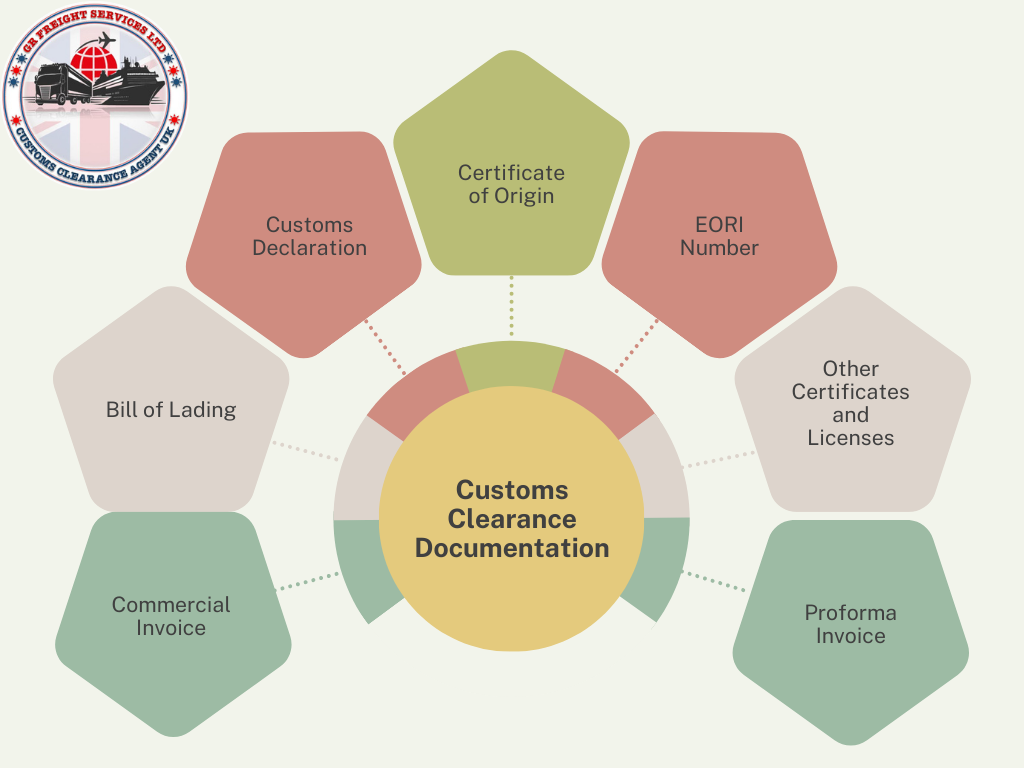Customs Clearance Documentation: What Documents Should You Need For Perfect Trading
Every country has distinct rules and regulations governing international trade and import/export procedures. As a result, importer/exporter need to navigate through various customs procedures in order to get their goods across borders. One of the most important aspects of this process is obtaining the necessary customs clearance documentation.
Table of Contents
ToggleWhat are Customs Documents?
Customs clearance documents, also known as import/export documents, play a vital role in international trade. These documents contain crucial information about the shipped goods and are mandated by customs officials to verify the contents, value, and origin of the shipment. Failure to provide these documents can result in delays or denial of entry into a country.
What documents do I need for customs clearance UK?

In the United Kingdom, specific documents are indispensable for customs clearance:
Commercial and Proforma Invoice: This document provides a detailed description of the goods being shipped, including their value and origin. It is used to calculate any applicable duties and taxes. Learn more about proforma invoice.
Bill of Lading: Functions as a receipt for shipped goods, containing key details like shipper and consignee names, destination, and a goods description. It facilitates the transfer of ownership from seller to buyer.
Customs Declaration: A document declaring the shipment’s contents and value. Customs officials use it to assess applicable duties and taxes.
Certificate of Origin: Validates the country of origin for the shipped goods, often required for certain products or when claiming preferential treatment under a trade agreement.
EORI Number: An Economic Operator Registration and Identification Number required for those involved in international trade. Obtained from HM Revenue & Customs, this unique identifier is crucial for shipment identification.
Other Certificates and Licenses: Depending on the goods, additional certificates or licenses may be necessary for customs clearance, such as PEACH certificates for fresh produce or POAO licenses for animal products.
How do I obtain customs clearance documents?
To obtain customs clearance documents, you will need to work closely with your customs clearance agency or freight forwarder. They will guide you through the process and ensure that all necessary documents are prepared and submitted correctly. It is important to provide accurate and detailed information about the goods being shipped in order to avoid delays or issues with customs officials.
A good customs broker or freight forwarder will also be familiar with the specific customs requirements of different countries and can help you navigate through the process smoothly. It is important to communicate openly and promptly with your chosen agency to ensure a successful clearance of your goods.
Conclusion:
Clearing customs is a multifaceted process, with the proper documentation being imperative for seamless and prompt delivery of goods. Understanding the requirements and partnering with a reputable customs clearance agency or freight forwarder can guarantee a hassle-free experience for importers and exporters. Providing accurate and complete customs clearance documents is pivotal to avoiding potential delays or penalties, fostering robust relationships with international partners.
Contact Us:
Recent Blog
-
ATA Carnets Explained: Understanding the Basics and Benefits
-
Understanding EUR1 and EUR-MED Certificates: A Comprehensive Guide
-
Understanding Commodity Codes for Trading Success: A Comprehensive Guide
-
The Definitive Guide to Incoterms for Global Trading Partners
-
The Importance of Harmonized System (HS) Codes in Global Trade
